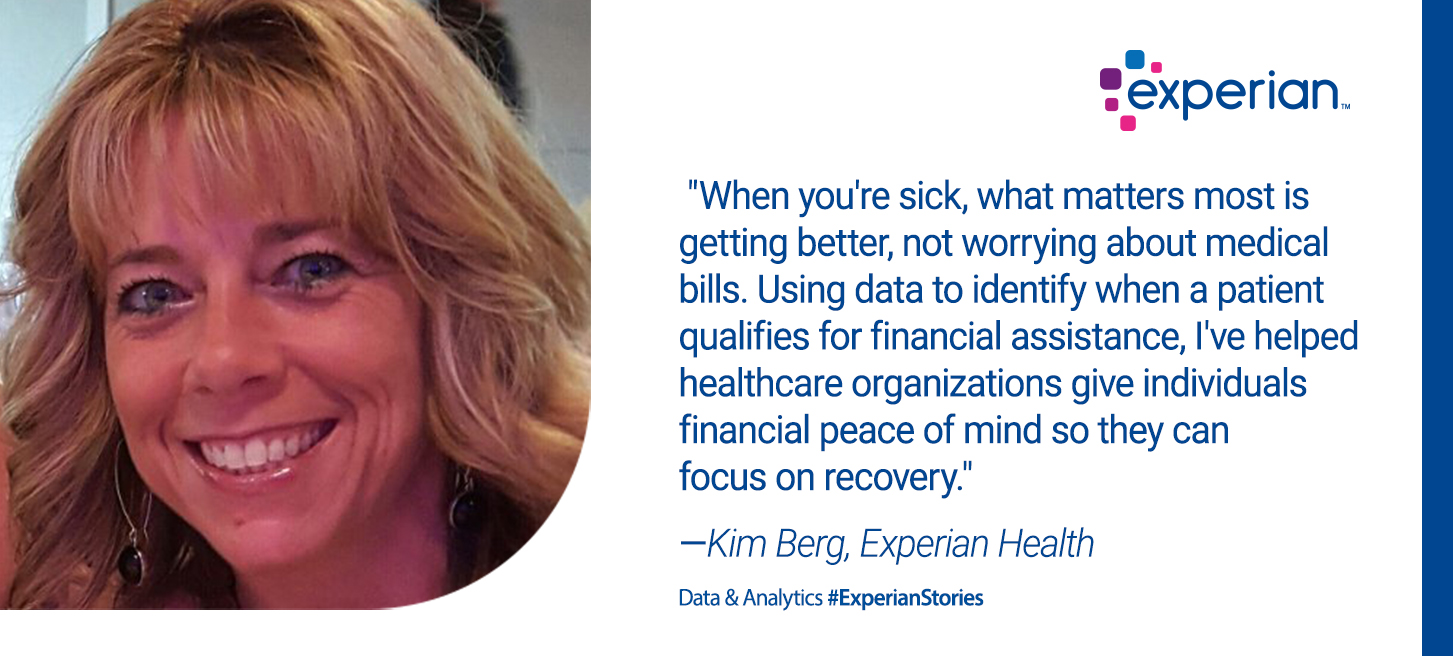
I’m an Experian Health Training Manager. I get to meet with healthcare organizations and teach them how to use our Financial Assistance Screening tool, which helps them easily and cost-effectively determine which patients qualify for financial assistance.
I didn’t expect to interact directly with patients as part of my job, but I did – and the experience moved me.
Recently, a client started using our automated tool, so I went to Colorado to train their financial counselors on how the product worked and help them understand the data so they could begin to use the tool with their patients. But then I was asked if I wanted to see the tool in action.
Nothing could have prepared me for the experience of interacting directly with a patient who benefited from this tool – a woman who seemed visibly shaken when the financial counselor and I first met her in one of our client’s medical centers.
After the financial counselor explained why we were there, she began to work her way down a list of questions prompted by Experian’s tool, asking about the patient’s annual income, household size and disabilities.
After two minutes of questioning, the counselor hit “save” on the responses, and immediately the results came up on the screen. “Good news – you qualify for a 100 percent discount through our Medical Financial Assistance program,” the counselor said. “Your medications, stay and follow-up visits will all be covered.”
The patient had trouble processing this information at first. “Are you telling me that now I can focus on getting better, and I don’t have to think about my medical bills?” This realization brought her to tears of relief. Her time in the waiting room had been plagued with thoughts of how she couldn’t afford her hospital stay, despite how much she needed medical attention. With our help, those thoughts were put to rest.
With Experian’s tool, patients like this woman no longer need documents to prove their annual income. And healthcare providers don’t need to manually calculate whether and how they can provide financial support.
After our meeting with this patient, the financial counselor told me she was so moved she was shaking. “It is inspiring to so tangibly be able to help our patients,” she said.
I agree. I’m glad that through data, I’m helping healthcare organizations give patients financial peace of mind when they need it most.
Read more #ExperianStories from our colleagues around the world.
